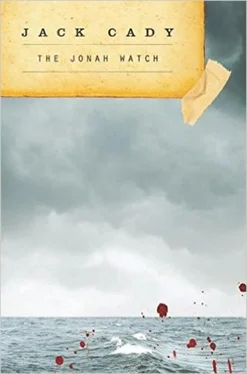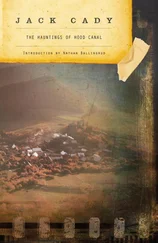Through piling seas Adrian towed Mirabelle , Eben , Lorna Ann , Catspaw , Vicky R. and Knight Ethelred … a manly yacht.
From south came news that the decommissioned cutter Ajax , rusting on the scrap pile in Boston, was sold to a man who planned to turn it into a small and intimate seaside restaurant.
Cutter Adrian fought a fire at the coal yards in Portland. Ice once more formed in the bow, and ice sprinkled as drops fell skidded across the decks from the high arcs of water, while men and fought to stay afoot and in command of the heaving, pulsing hoses. The fire was red and gold against the backdrop of the whitened city, and black smoke rose to distribute the miserable smell of sulphur through the ship.
Seaman apprentice Brace refused sick leave, having nowhere to go, and he hung around the Base as an ambulatory patient—but he resembled, in his anxiety to “get on with it,” a blind pup in a sausage factory. Conally spoke to Chaney, and Chaney read Levere’s comments in Brace’s service record. Brace became a full seaman, albeit a seaman with a temporarily unusable arm.
Cutter Adrian towed Daniel , Misty , and, on a day of glory, met cutter Abner at sea as Abner was returning home. Adrian and Abner closed, men waved, and then the two ships kicked apart on diverging courses to search for the overdue Dominick which was found two days later by dune pounders as the disabled vessel swung at the pick in shoal water.
Adrian towed Violet, Pride Of The Banks, Obadiah .
Abner , in an excess of family feeling, towed Sister Sue, Seven Sisters, The Brothers .
Able towed Erasmus .
Word from south spread through the fleet, and the word said that cutter Able was “takin’ a turn” and “lookin’ good.” Able towed Jacqueline , Prester John II, Rockrose. Able searched and found the overdue and written-off Maiden Of Mist , adrift with a starving crew that had been reduced to its next to last bottle of booze.
A thirty-six foot lifeboat was declared excess by the Base. It was invoiced as a gift to a troop of sea scouts. From north came radio gossip which hoped for the early breakup of the ice.
Adrian towed Whisper, Fife, Excalibur .
Brace, healed and moving silently, slipped into the valued position that had once been held by Glass. Conally confided to Howard that Brace was “gettin’ to be dependable.” Brace, as mum as the library from which he withdrew books, spent his off-watch time on the messdeck. He read thrillers, mostly fiction, but thrillers, certainly.
Adrian towed Adrienne , a possibly incestuous project, which, as Lamp gloomily observed, “just sooner or later had to happen.” During the time of that tow, the State of Maine turned toward the glorious state of spring.
In Maine in spring, the interminable days of March disappear with a kind of final vengeance, a well-delivered backhand of wind and sleet and rain. April offers a cold cacophony of rain. Rain runs in the brick streets, and it pounds into the plowed facades and banks and pillars and stockades of snow. The piled snow is like a fort besieged, gradually giving way and breaking down before the blows of an inexorable invader. Crud and dirt, grime, soot from wood fires, bleeds darkly from roofs, washes into the streets, and disappears toward the harbor. Old men stretch, yawn, interrupt their yarning to look through wet windows at the dismal weather. The old men read the “sign.” Young men hunger and begin to laugh, and the young men are unamazed by tales.
Yeoman Howard, who had looked forward to blowing his reenlistment bonus on bountiful women and a dandy hotel room, found instead that he was groping. He was still young, but he did not feel at all young anymore. With a desperation that he could not then understand, he threw himself at work, gave over to work, and thus, soon ran out of work. The days rolled past, boring, incomplete. Howard, for the first time ever, thought of the future. He decided to change his rate, take a one-grade bust and reenlist as a junior quartermaster. As spring arrived in green splashes, and as liberty was granted, Howard went ashore. Drinking.
The beer tasted just elegant, but it no longer held the alcoholic bite of perfectly inferred freedom. In the bars the jukeboxes blared, and the women seemed to laugh louder and longer at dull jokes. Dane’s shack job, Flossie, sat every night at a table beside a chief damage controlman. The silken, stitched tiger on the rolled sleeve of Howard’s tailormades was slightly frayed.
The women laughed, haw, haw.
Howard typed his reenlistment papers, signed them, tucked them in his desk. He went ashore, got drunk, really drunk, falling-on-his-face-in-it drunk. Conally dragged him back to the ship. Howard slept, woke, showered, muzzled coffee beneath the protective and concerned eyes of Lamp. In two days, when Howard was sure he was sober, truly certain, he opened the desk drawer and tore up the reenlistment.
YMCAs, where young lads run naked and screaming through the hallways as they snap each other on the butts with wet towels, are the curse of the forlorn, the lost, the wanderer; and any YMCA can eventually cure most men of inambition. Howard nosily visited YMCAs, a grand tour of Y’s in Boston, New York, Winston-Salem. He toured the coast, saw cutter Abner on one occasion, cutter Able on another. He visited Fairhaven, Newport News. He decided that he must leave the coast. He thought that if he left the coast he might feel young again; return to youth.
He toured the heartland, was revolted. The cow colleges, the house trailers, the daft certainty. Like a man intent on suicide, he pressed on to California. He drank, but he did not get so drunk that he could not find the bus station in L.A. He fled back east, wandered along the docks. He fished for a season, thought of going for a purser’s ticket in the merchant marine; dismissed the thought.
He seemed nudged by a hand that momentarily extended from the invisible world, touching his shoulder, returning him to Boston.
It was in Boston, he told himself, that he would have to “make or break,” and, although he did not understand why, he still did understand that awful proposition that is not a myth, but true. Because it was in Boston—no matter how bloody and wrongheaded and fire filled the history might be—it was in Boston that the primer had been written. It was in Boston that he gained a sense, a first and original taste of a new kind of youth. He discovered that, after all, he was not a man who made history, but a man who studied history. In an excess of redeemed youth, and of beautiful and certain ignorance, he began his work.
He worked well during his thirties, mastering the facts, sweeping instinctively with the flow, feeling intuitively that the slowly rolling wheel of events would someday, and soon, make mists of confusion flow away as before a night wind. He got married, the first time to a singer, the second time to a librarian; but, in spite of his attentions, the women became bored, somehow. They found other and more clever companionship.
In his early forties, he found himself pondering matters over which other heads—and better, doubtless—had already pondered. He added to the matters a small touch here, an addition there. His accomplishments, if they were accomplishments, produced works that better heads in the future might ponder, use, if only to disprove. He again married, a fellow historian, and that woman chose to stay beside him.
In his late forties he enjoyed a flurry of hope, good will, and he worked well. He believed, with some justice, that he had an original notion. He thought, studied, worked, turned fifty.
Читать дальше












